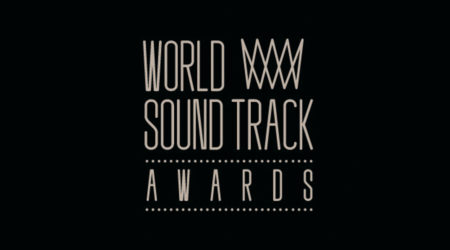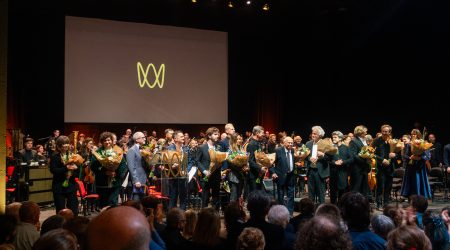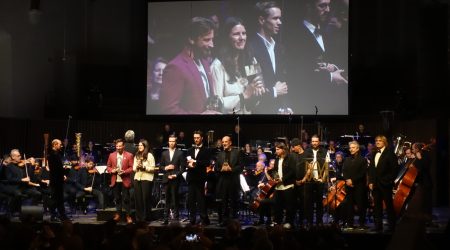During the World Soundtrack Awards I had the chance to talk with Borislav Slavov, a veteran video game composer who has been working lately as the music director and in-house composer for the gaming company Larian Studios. Their latest game, Baldur’s Gate 3, has been received very well including its score by Slavov, and has been awarded with many awards. During our conversation we talked about that game, but we also spoke about his meeting with Hans Zimmer and working as a full-time employee at a gaming studio. This interview took place on October 19, 2023.
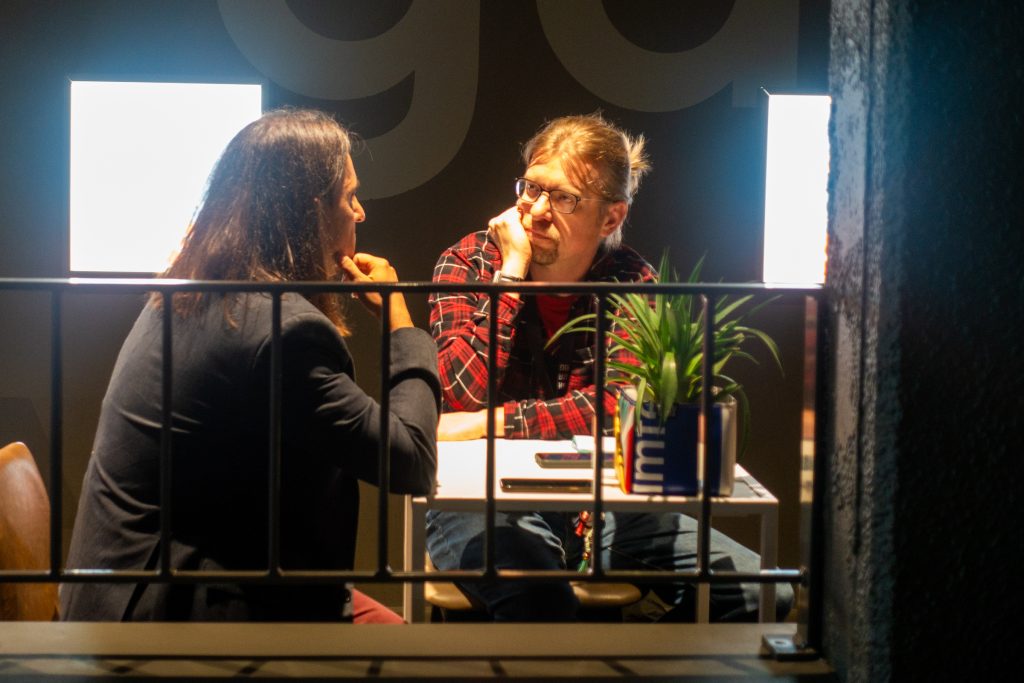
Anton Smit: Lately, if people are talking about you, it is all about your work with the game company Larian Studios. But I remember seeing your name for the first time, like 15 years ago, next to Hans Zimmer’s for your work on the game Crysis 2. Could you tell me how that happened?
Borislav Slavov: I am pleasantly surprised that you’re asking, because you’re quite right that the people, especially here at the festival, know me best for my recent scores. I joined Larian Studios eight years ago, but before that, I was already a veteran composer, an old dog, so to say. I started my career in the industry in 2001. What you were asking me is one of the romantic times of me being a composer. Back then, when I was working on the Crysis franchise, I had a unique chance and pleasure to meet Hans in the legendary studio of Remote Control in L.A. Long story short: I was the lead composer of Crysis 2, but also the music director of the franchise, responsible for setting the direction and leading a big part of the music along with my fellow composer Tilman Sillescu. I also took care of all the technical and creative parts, making sure that every single piece of music that we were composing and producing was going to be properly implemented, and to elevate the game in the right way.
At the beginning of the music production, I had no idea that Hans was going to be involved in the project. I believe no one was actually aware of this fact. I remember that our audio director back then, another veteran from Hollywood, Campbell Askew, was involved in many legendary movies like Event Horizon, for instance, and several more. He basically introduced me to the ‘Triple-A games’ league. He found me one morning and said he had a surprise for me. We were going to Hollywood to meet my favorite composer, Mr. Hans Zimmer. I thought he was pulling my leg, but he responded seriously to pick up my stuff and tooth brush and that we would be flying to L.A. It turned out that the senior executives wanted to get Hans on board to give the game those Hollywood quality frames he is known for, because the main body of the score was already composed and produced. We all know his skillset and how he is able to provide a very rock-solid frame to a soundtrack, especially when he’s given the responsibility to provide the main themes for a game. For the first time in my career, instead of coming up with the main themes first, it was the very last thing that we did. I was, of course, exploring and having different ideas, but when we met with Hans and spent some time at the Remote Control studio, we had a chance to sync our visions and our directions, and that eventually allowed him to come up with something truly impactful. Even now, like 15 years later, whenever I listen to the main themes that he composed and produced as a result of our creative meetings back then makes me very excited, because he kind of managed to catch the pulse of the score that was composed and to present it with those absolutely amazing main themes.
I also had a unique chance to tell him one of my favorite stories about how I started my career, being influenced by him. We were having a break, and I told him that in the very first interview that I was giving many years ago, the last question was if there was a single person I could meet in this world, who would that be, and what would I ask this person? You know what? I responded that the person would be Hans Zimmer, and the question would be: “May I shake your hand, Mr. Zimmer?” He said “Of course,” shook my hand, and we took a legendary picture which is very dear to my heart so many years afterwards. I had a chance to meet him a few years later as well.
I love the film industry, but I consider myself a video game composer. I know I am just one of the few guys who can, out loud and openly, say something like this, because most of my fellow colleagues consider themselves ‘composers’, and I don’t blame them; it is just being a part of me. They don’t make a difference between composing for different media. On the other hand, I am very proud to say that I consider myself a video game composer. This is what I have been specializing in for the past 20 years. That is why I decided not to be only a composer and a music producer but also a music director for video games. From one side, you are a creative person composing and producing the soundtrack, but from another perspective, you need to have a deep understanding and knowledge of the game: How does the narrative work? How is the gameplay? What are all the different nuances and systems that are supposed to be working together? When you draw the line at the end of the day: Is it a coherent and very fun experience?
AS: What caught my attention during your Meet and Greet a couple of hours ago is that we share something in common: because I work in IT like you did. Is that IT knowledge needed to be a full game composer?
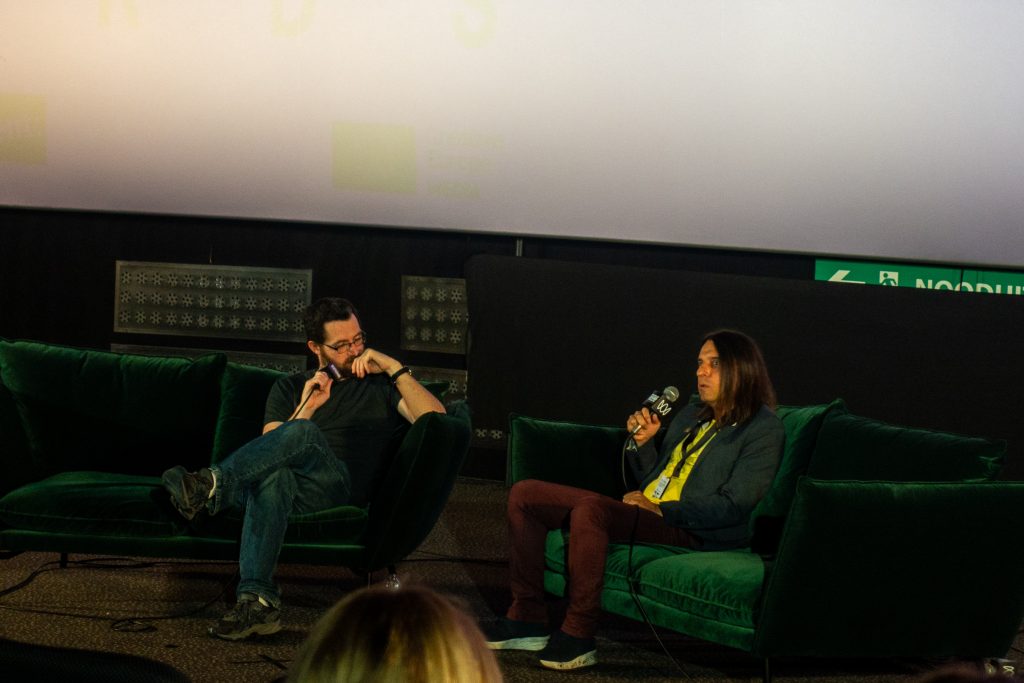
BS: No it is not necessary, but it helps a lot. Simply because having this technical background, this technical thinking if you like, helps a lot when you sit down and start designing the music system. Music systems for video games comprise two main pillars: a creative one and a technical one. So you can have a creative vision, which is very brave, interesting, and innovative, but on the other side, you need to find a way to implement it, to build a system that is going to implement and present this beautiful creative vision into the game. This technical knowledge and education I got many years ago gave me a head start. On the other hand, not being classically trained was a bit of a challenge, because I had to catch up.
AS: Was making music a hobby for you, or were you already doing something with it professionally while you were working in IT?
BS: I was doing it, but it was in a semi semi-professional way, because I was not full-time involved in producing music. In the beginning of my professional life, before I started working as a professional composer and music director, I was working in IT in a full-blown software company. I love the technical side, but at the same time, my heart lies with music. I got the courage one day, and I said: “Enough is enough.” I cannot fool myself anymore because life is too short, and I was not happy.
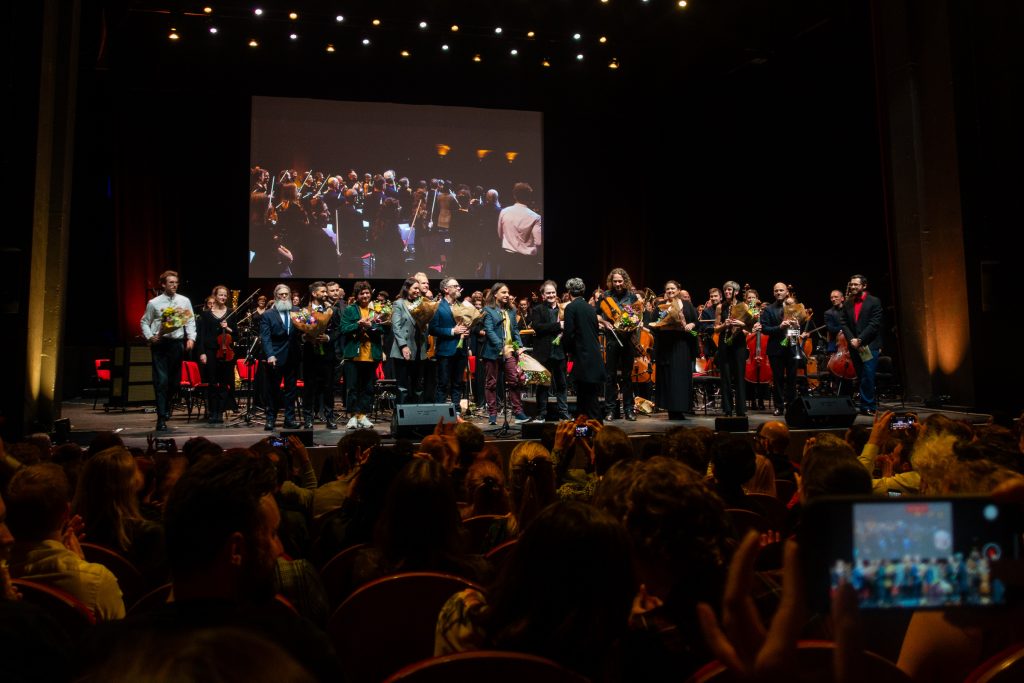
AS: I can relate; that is why I am here. I work in IT, and talking to someone like you is my outlet for film music—in a different way because I am not a composer.
BS: Exactly. We share the same passion and we just express it in different ways, but we both found our way to be here, eventually talking about what we love. That is a very important thing again: Staying faithful to the things you love. It is one of the things that makes me very happy when I hear fellow composers say similar things: Stay faithful to who you are because, ultimately, it is not going to help if you are a really great imitator. No matter who you are imitating, John Williams or Hans Zimmer. It doesn’t really matter because they are already there, and the world does not need more of them. So yeah, I think working in IT helped me quite a bit, and it keeps helping me because I am designing those systems. I am not just the one who is giving the direction and supervising for its completion, but I also love being very hands-on.
AS: I imagine having a song be extremely important in a boss fight in the game Baldur’s Gate 3 is not something that would be easily done if you do not have knowledge of the system in the background.
BS: It is going to be that more complicated, and I have to learn quite a bit before I am able to jump in and start implementing and designing music for stuff like this, but I truly enjoy it. It gives me quite the satisfaction to sit down and think about it, especially when I have a very brave and crazy idea. The process of finding a technical way to implement it is a very satisfactory process. Doing your technical research, which is supposed to serve your creative vision, is amazing and helps a lot, especially when you are relying on yourself. Usually, if you are not proficient from a technical perspective, you need to collaborate with somebody, which is a brilliant way to achieve something. In my case, I feel lucky that, in most cases, I am able to do the technical research on my own already, or at least most of it. I have at least a pretty decent idea of what exactly the challenges are that I need to overcome, so that I can make my creative idea work inside the game.
This fun and favorite moment with Raphael was a very brave and unexpected thing to do in the first place, but it turned out to be great. Long story short, it was a very brave idea and decision because it was absolutely unexpected for a game and a moment like this. It was one of those moments when you have absolutely no idea how the public is going to react. It’s one of those moments when you need to have the balls to do something really out of the box, but you strongly believe that that’s a cool thing, and you just say, “Okay, let’s do it!”
AS: You are pretty much involved as an employee for Larian Studios, right?
BS: Yes, I am a full-time employee, and my main roles are composer and music director. Those are the main pillars that I am responsible for, but, of course, I am also a musician and a music editor because implementing the music is a job in its own right.
AS: Yeah, but you can see that as a blessing and a curse because you are creatively bound to one project.
BS: It is a commitment and a matter of conscious choice because I don’t have to do this. That’s the thing, but I do it because it makes me happy.
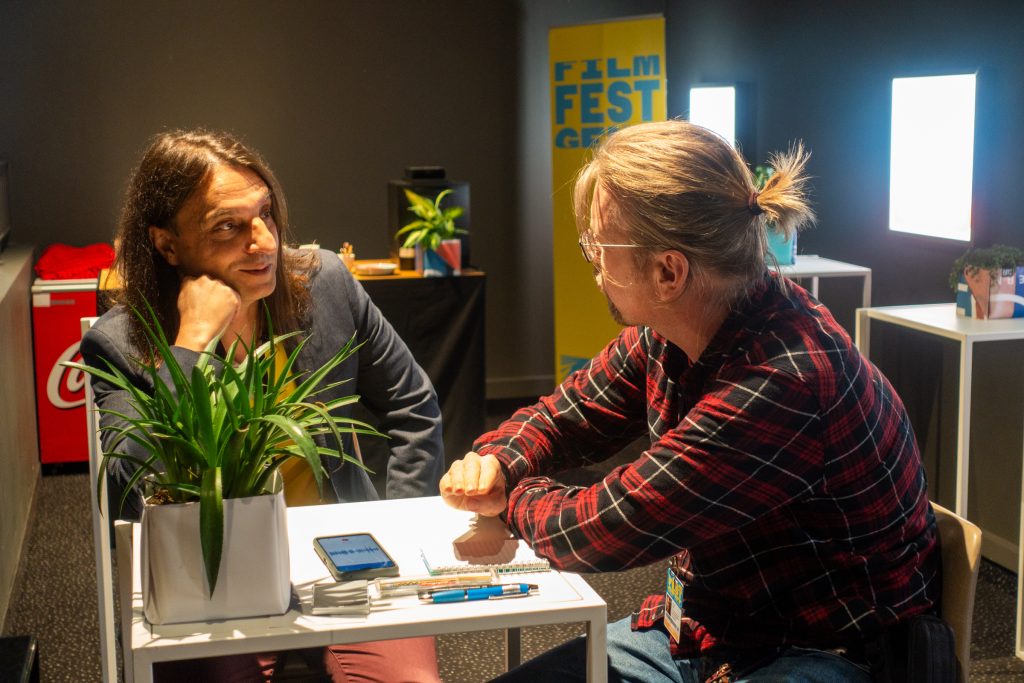
AS: How do you mean that exactly? Because a game needs music so you have to do it in that kind of sense.
BS: I mean that even if I want to, I can’t explore different projects at the same time. Even if I am to explore a hobby project of mine, I can always put my creative force into more than one project at the same time, but I don’t do this consciously because I want my entire creative force and energy to be focused on something that I truly would love to achieve. That is why I keep mentioning Larian Studios, because it is a very special place. I have been around for quite some time. I have worked for quite a few companies, and this is an absolutely unique company where creativity is extremely respected to the point that you are being given the freedom to go crazy with your really interesting, innovative and novel ideas. For a composer like myself, this is a dream come true. You can imagine that you are given all the freedom in the world to express yourself. You are well connected with your fellow directors and have the trust of your director and your boss. How does that sound? That sounds fantastic. It makes me extremely happy and very satisfied, because I sit down, explore everything that comes to my mind and spirit, and then present it to my fellow directors and colleagues. We have our discussions and then we implement it into the game As a result, we are sitting here talking about Baldur’s Gate 3.
AS: Baldur’s Gate 3 is now done. That means there is a new project coming up that you probably cannot talk about. What excites you about the next project?
BS: The same thing that was exciting me for all the projects thus far for Larian Studios. I already told you that we are like a family. I don’t want to sound like a cliche again, because this expression kind of feels like a big cliche, especially nowadays. It is something unusual, but I can tell you, with a hand on my heart, it is a special place. It is very exciting because the creative energy that is being shared in the company is absolutely unique.
We, of course, are starting to work on a new project, which is exciting and interesting. We are all full of passion, because we all want the same thing. We are like a band of brothers who have already been there on the battlefield. We won a really big battle together and are heading for an epic new one. A band of brothers that know themselves quite well to the point that they can fully relax, knowing that someone else is having their back the moment they need to relax or catch their breath. They can also be relaxed when they need to express a very wild and crazy idea. They are very excited. They can go with the craziest and the most interesting thing that comes to their mind. It is absolutely unique. It is really hard to describe.
Of course, a new project comes along with a fantastic new theme and a new direction of the game. Those things are, of course, also on the table, but ultimately, what makes me super excited is that the band of brothers that we are at Larian Studios are heading for a new epic battle.
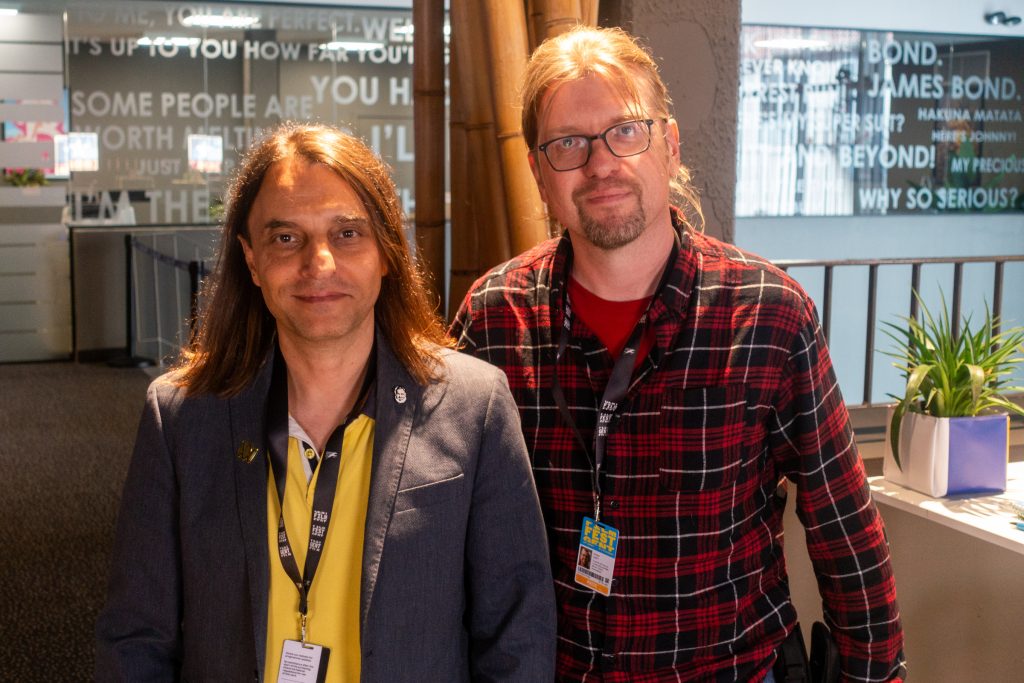
AS: Is there already some music floating in your head?
BS: Absolutely! Yes, you have no idea!
AS: So, do the gamers have something to look forward to and listen to?
BS: I can tell you that I am going to go wild this time around. Not that I haven’t thus far, but I really can’t wait to experiment with all the ideas that are going crazy in the back of my mind!
AS: A perfect conclusion, I cannot wait!
Thanks to Maurice Boeijen for taking pictures during the interview and the World Soundtrack Awards for this interview opportunity.

